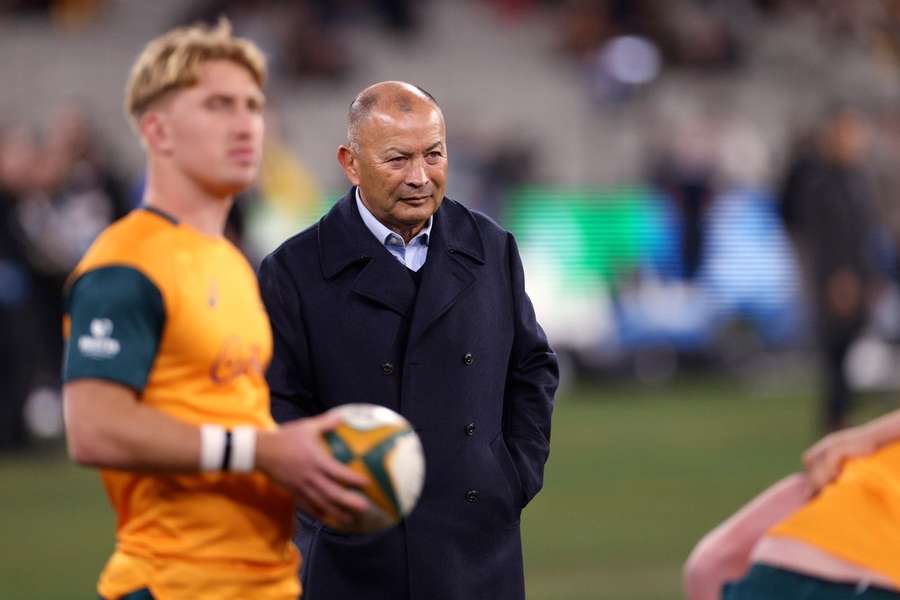When Eddie Jones (63) was brought in as the Wallabies' head coach for a second stint in January this year with the upcoming World Cup only a few months off, some saw it as a roll of the dice made far too late by Rugby Australia, attempting to revive a side that was destined to underwhelm at the tournament in any case.
Others saw it as simply reckless. More to the point, previous head coach Dave Rennie (59) - appointed in 2020 - wasn't universally disliked despite having a pretty poor record during his tenure in charge of the team.
Rennie's win ratio of 36 per cent was the lowest of Australia's head coaches for some time and the first to dip below 50 per cent since the late 1970s.
In spite of that, he oversaw the introduction of plenty of promising new talent in a period of generational transition marked by a dearth of talent in the sport in Australia.
Nevertheless, while it wasn't an easy era for Rennie, or anyone, to be in the role, his numbers undeniably don't make for pretty reading.
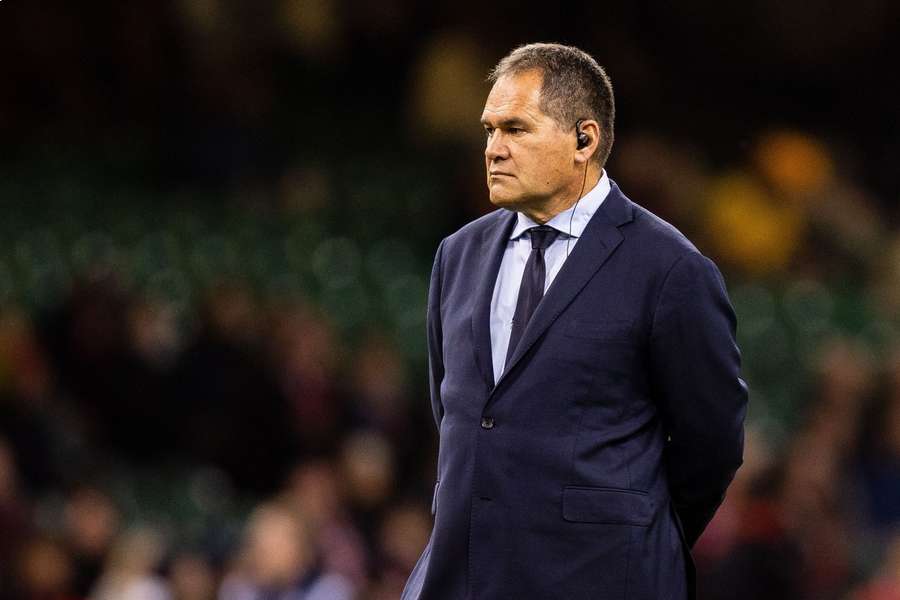
Jones, who previously coached Australia from 2001-2005 and took them to the 2003 World Cup final, was in charge of the Wallabies' old enemy England during Rennie's reign.
His time in charge of England was largely successful - he led them to a World Cup final (2019) and won three Six Nations championships, but the team dipped in form last year.
On December 6th, he was sacked as head coach following a poor run of results in which England had won just five of 12 tests. Still, he left them with a win ratio of 73 per cent - the highest of any coach.
A side born bolder
Suddenly an opportunity opened up for Australia. Jones is a highly respected and successful coach, although often a prickly presence in the media, and the Wallabies were slipping into a malaise with a World Cup looming.
The decision-makers had a call to make: Should they let Rennie - who was contracted until the conclusion of the World Cup - continue with a project that seemed destined to peter out at the quarter-final stage of the tournament or do something braver?
They went for the latter. Rennie was discarded and Jones was sensationally appointed on a huge contract that would see him take charge of the side right through to the end of the 2027 World Cup (to be held in Australia).
The Wallabies and England could well meet in the quarter-finals of the approaching World Cup (if one finishes second and the other first in their respective pools) - with Jones' inside and intimate knowledge of the team, perhaps this was a very shrewd call indeed.
But let's not get ahead of ourselves there. Before Australia's World Cup campaign - kicking off on September 9th against Georgia - Jones would have just five matches to implement his formula and test out potential players.
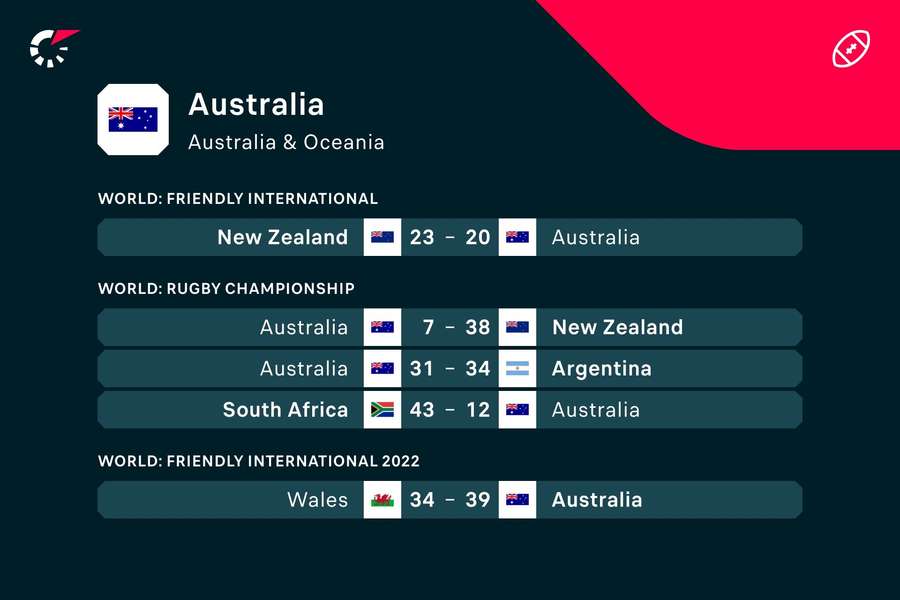
We are now four matches into those five and they have lost all of them. Is this a failure?
Not necessarily. Of those four, two were against New Zealand's supreme All Blacks, including one very narrow defeat in the most recent test while one was a rather heavy loss in South Africa against the Springboks.
There is no shame in those results as they are both better sides but the other loss against Argentina hurt a little more - especially as they are led by ex-ex-Wallabies coach, Michael Cheika (56).
Australia play World Cup hosts France in their final warm-up match on Sunday.
Scorching the earth
After those four matches of data to draw on, Jones had to choose his squad for the trip to Europe. What did he do? Well, he scorched the earth - metaphorically speaking.
Much to the shock of many, Jones got rid of some dead, or simply dying, wood, discarding two of the Wallabies' most experienced players - former captain (and the most-capped Wallabies captain) Michael Hooper (31) and talismanic playmaker Quade Cooper (35), who possess over 200 international appearances between them.
The squad he selected averages 20 caps per head. If you thought his appointment was bold, this was something else altogether.
For the record, Hooper and Cooper were arguably on the way out of the team for differing reasons. Hooper had already stepped down from the captaincy under Rennie in mid-2022 in order to take a mental health break - prompting many to wonder if he'd ever play again, only to return to the fold later that year. However, he has been battling injury and form concerns in the recent matches under Jones.
Cooper, meanwhile, has suffered from fitness issues for years and made the professional downgrade to the Japanese league back in 2019, rendering his continued selection less likely due to the restrictions on internationally-based players and the quality of the competition in which he was playing.
Ultimately, the return to and dependence on Cooper at fly-half under Rennie said more about the lack of talent in the position than it did about Cooper's quality. He was certainly the best attacking fly-half of his generation in Australia but there should have been more pressure on him in the position in recent seasons.
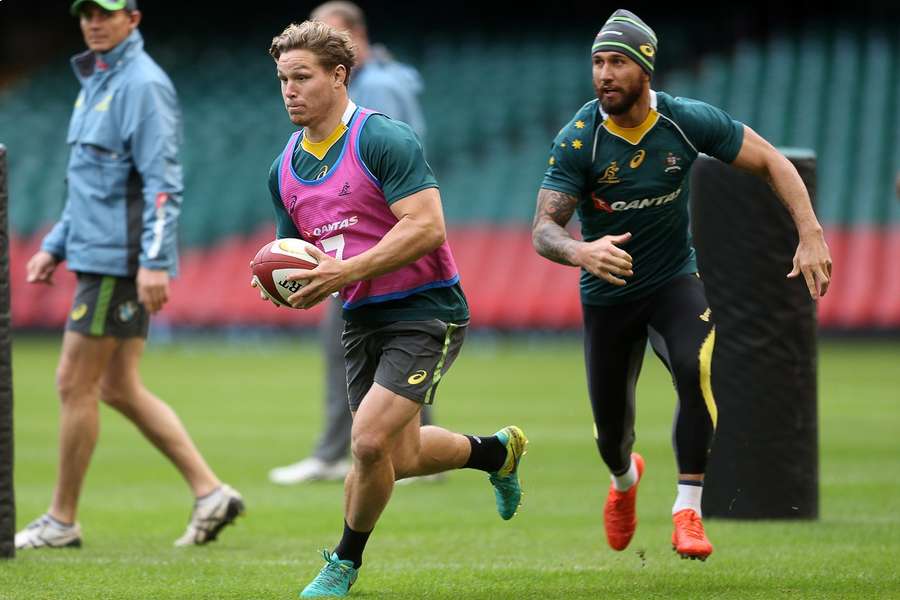
Those issues aside, both players were called up and used by Jones in the recent four-match losing streak and despite the poor run of results, few if anyone expected them to be excluded from the World Cup squad entirely.
Incredibly, Jones decided to select just one specialist fly-half for the World Cup - Carter Gordon (22). While he has had an impressive rise in the last few months, it's a huge task for an inexperienced player to take on that responsibility. Utility back Ben Donaldson (24) provides cover for the role but Jones has effectively anointed Gordon as his sole playmaker for the World Cup.
Aside from that bold shake-up, Jones also promoted towering lock Will Skelton (31) to captain and scrum-half Tate McDermott (24) to vice-captain - shifting the more experienced nine Nic White (33) to the bench role it seems.
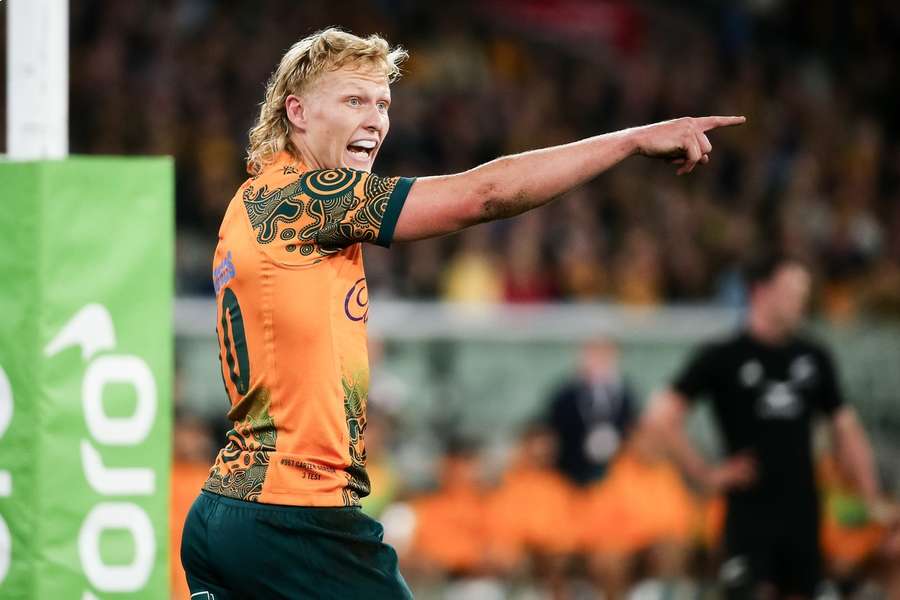
Out with the old, in with the new
Those were all extremely eye-catching calls from Jones and his team but ultimately, they feel brave and refreshing rather than reckless.
Jones' message in the media since his squad was announced has been as clear and uncompromising as ever.
Asked repeatedly about the high-profile exclusions, the line has been: “We’re moving on to a new young squad that’s going to take Australian rugby forward.”
Had Australia stuck with Rennie, well, we all know what would have happened - they would have progressed out of the group stage with the same tired old bodies and then fallen at the first tricky hurdle. Had Jones stuck with Hooper and Cooper, quite probably the same story would have unfolded, as well.
What Jones' scorched-earth selection policy has done is rewrite the Wallabies' narrative going into the tournament. Rather than it being one last hurrah for a couple of veterans, it's now a nothing-to-lose scenario for a group of fresh faces.
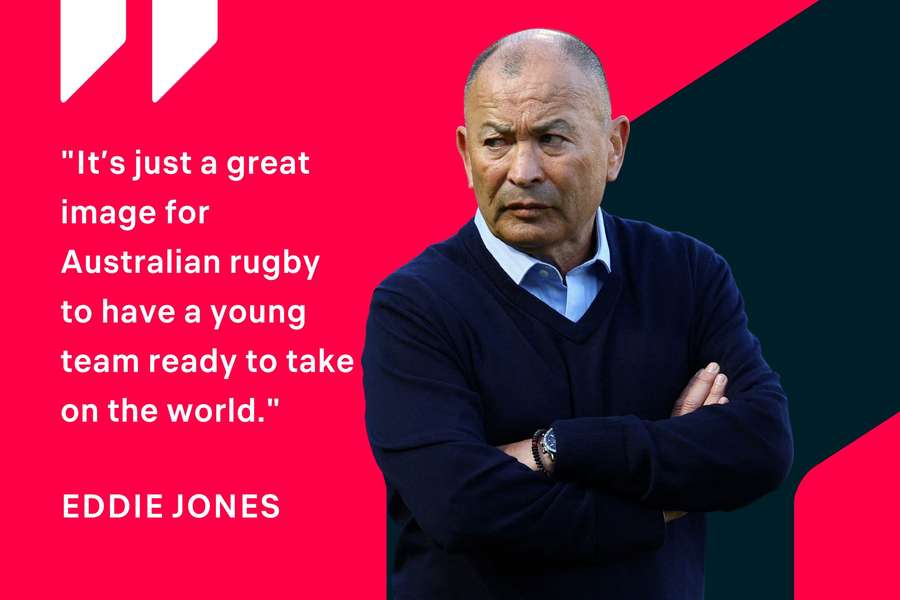
It might have looked crazy at first but Jones has arguably taken the pressure off his young squad through his bold calls.
He's not shy about heaping confident praise on them, either, saying after his selection: "This squad is good enough to win this World Cup and possibly go on to win the next World Cup."
And while no one expects them to do such a thing, Jones made it clear that not winning the World Cup, "... will be a failure," nonetheless.
"But there are other ways to be successful," he added.
"If we come back and if everyone in Australia is talking about how good the Wallabies were at the World Cup, and how excited they were about watching them play, then we will have had some success."
Once again, belief increased and pressure diminished.
Much like the Matildas' run at the recent Women’s World Cup in Australia showed, you can inspire a nation while not winning the ultimate prize. What better way to do that than with some fresh young players in bloom - players in their spring, rather than their autumn?
It was bold. It was brave. It was time.
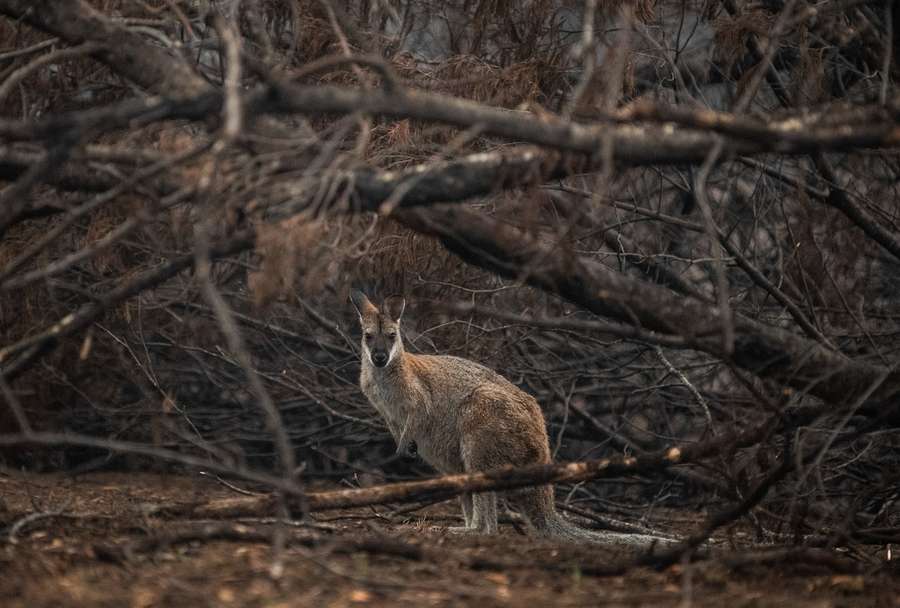
Australia is desperate for a new generation to pull on the Wallaby gold and rediscover the fair that typified their great teams of the past. To do that, the baton had to be passed on and Jones’ appointment and subsequently brazen approach was the best way to fast-forward that operation.
Will they win the World Cup? Probably not. But so long as they get respectably deep into the competition - that is, out of the pool stage - then they will reach the same ceiling they would've before Jones and all his slashing and burning.
To put it another way - if the Wallabies meet or exceed expectations in France, it will be deemed a success. If it all goes pair-shaped, well, at least the wheels are in motion. What’s more, the younger players in the squad will gain vital exposure in the process whatever happens.
Every summer in Australia, bushfires roll and, in worse cases, rage through the bone-dry landscape. For the Wallabies, however, that’s exactly what they needed to regenerate.


